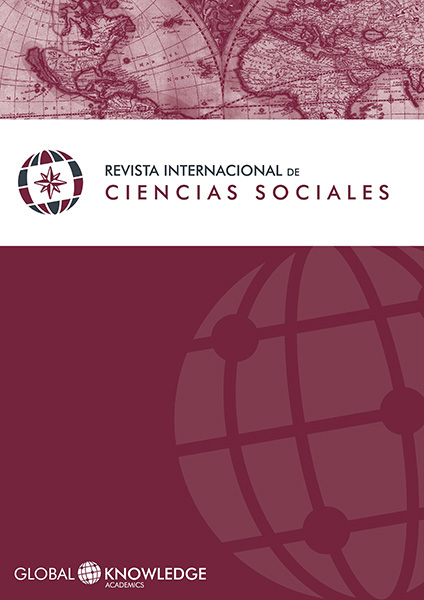Relations of the Integral Beeing in the Organizational Environment
DOI:
https://doi.org/10.37467/gka-revsocial.v5.1346Keywords:
Spiritual Capital, Solidarity, Social TeamAbstract
The objective is to identify the relationship of managers and employees the forms of recognition of Spiritual Capital as part of the integral being in the workplace. Thus, we described the spiritual evolution of man through the ages, we discuss theories about the whole being, identify and analyze the values that constitute the Spiritual Capital, showing its relevance in the business environment in two ways: the reflections generated by the formation of a team spirit high, and the values and principles that guide the actions of managers and employees. The research is characterized as qualitative descriptive exploratory design, whose basis was made by the literature review. The case study was conducted at the Agency for Post Franchised Rua Grande, located in São Leopoldo / RS. We used the methodology of content analysis, using the technique of speech analysis performed by guiding tours of interviews with two managers and a non-probability sample of ten employees. In the analyzed company, identified as a factor of greater relevance to management integration with your staff, creating involvement and complicity in the team. Leaders seek personal satisfaction and professional staff as well as realize the extent of the social issues of particular employees by making the work environment supportive. The methodology applied by management contributes to the formation of the integral, since it gives employees freedom of action, stimulating their potential and enhancing their qualifications. The agency has an integrated team, strengthened by the values and purposes guiding spirituality.
RESUMO
Downloads
Global Statistics ℹ️
|
475
Views
|
148
Downloads
|
|
623
Total
|
|
References
Abbagnano, N. (2000). Dicionário de filosofia. São Paulo: Martins Fontes.
Bardin, L. (2004). Análise de conteúdo. Lisboa, Portugal: Edições 70.
Boff, L. (2000). Espiritualidade: um caminho de transformação. São Paulo: Sextante. CR-ROM. Sonopress – Rimo Ind. e Comércio de Fonográfica Ltda.
Chopra, D. (1998). As sete leis espirituais do sucesso. São Paulo: Best Seller.
Coletti, L. (2006). Sociedade e Política: Estudo sobre a natureza humana em Jean-Jacques Rousseau. Passo Fundo: Instituto Superior de Filosofia Berthier. – (coleção Dia-Lógos ; 9).
Guillory, W. A. (2002). A empresa viva: Espiritualidade no Local de Trabalho. São Paulo: Pensamento-Cultrix.
Japiassú, H., Marcondes, D. (1996). Dicionário básico de filosofia. Rio de Janeiro: Jorge Zahar.
Lanz, R. (1985). Passeios através da História: à luz da Antroposofia. São Paulo: Antroposófica.
Russ, J. (1994). Dicionário de filosofia: os conceitos: os filósofos: 1850 citações. São Paulo: Scipione.
Steiner, R. (1984). A direção espiritual do homem e da humanidade: resultados científico-espirituais acerca da evolução da humanidade. São Paulo: Antroposófica.
Wolman, R. N. (2001). Inteligência espiritual. Rio de Janeiro: Endiouro.
Zohar, D.; Marshall, I. (2006). Capital Espiritual: usando as inteligências racional, emocional e espiritual para realizar transformações pessoais e profissionais. Rio de Janeiro: BestSeller.
Downloads
Published
How to Cite
Issue
Section
License
Those authors who publish in this journal accept the following terms:
-
Authors retain copyright.
-
Authors transfer to the journal the right of first publication. The journal also owns the publishing rights.
-
All published contents are governed by an Attribution-NoDerivatives 4.0 International License.
Access the informative version and legal text of the license. By virtue of this, third parties are allowed to use what is published as long as they mention the authorship of the work and the first publication in this journal. If you transform the material, you may not distribute the modified work. -
Authors may make other independent and additional contractual arrangements for non-exclusive distribution of the version of the article published in this journal (e.g., inclusion in an institutional repository or publication in a book) as long as they clearly indicate that the work was first published in this journal.
- Authors are allowed and recommended to publish their work on the Internet (for example on institutional and personal websites), following the publication of, and referencing the journal, as this could lead to constructive exchanges and a more extensive and quick circulation of published works (see The Effect of Open Access).













